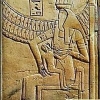Sign in to follow this
Followers
0

Which Elements/Phases does each Vices/Negative Emotion Correlate to?
By
Horus, in General Discussion

By
Horus, in General Discussion